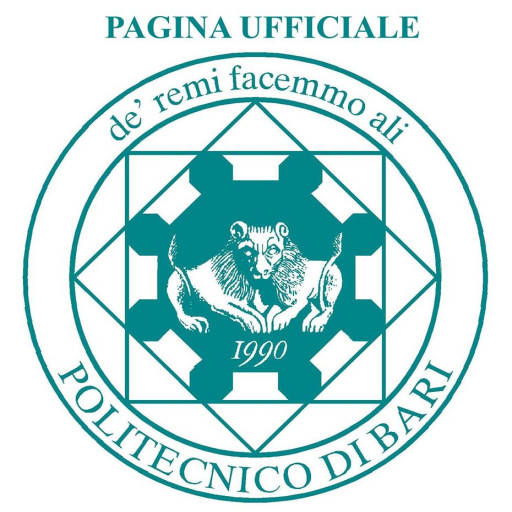Automation and Control is a multidisciplinary master's degree programme offered by the Slovak University of Technology in Bratislava, designed to prepare graduates for careers in modern automation and control systems across various industries. The programme provides in-depth knowledge of the principles and applications of automation, control theory, and intelligent systems, combining theoretical foundations with practical skills. Students will explore topics such as automation hardware and software, process control, mechatronic systems, robotics, and industrial communication networks, enabling them to design, implement, and optimize complex automation solutions. The curriculum emphasizes both classical control methods and contemporary approaches such as artificial intelligence, machine learning, and data analysis, preparing students for the challenges of Industry 4.0. Courses are complemented by laboratory exercises, projects, and internships that foster hands-on experience and problem-solving skills in real-world scenarios. The programme also offers specialization tracks that allow students to focus on areas such as automation in manufacturing, smart systems, or robotics engineering, aligning academic knowledge with industry requirements. Graduates will be equipped with the competencies necessary for advanced engineering and research roles in automation companies, manufacturing plants, or research institutions. The programme promotes the development of competencies in system modeling, simulation, and control, along with the ability to manage complex projects and innovate new automation technologies. With a strong emphasis on teamwork, communication, and continuous learning, students will be prepared to contribute effectively to the digital transformation of industries and to address the evolving needs of modern society. The faculty's close cooperation with industry partners ensures that the programme remains aligned with current technological trends and labor market demands, offering students excellent career prospects upon graduation.
Automation and Control at the Slovak University of Technology in Bratislava offers a comprehensive curriculum designed to equip students with advanced knowledge and practical skills in the fields of automation engineering, control systems, and industrial process management. The program focuses on the design, development, and implementation of automated systems used in manufacturing, transportation, energy sectors, and other industries where automation enhances efficiency, safety, and reliability. Throughout the studies, students explore fundamental topics such as electrical engineering, control theory, computer science, and embedded systems, laying a solid foundation for understanding complex automation processes. They also gain hands-on experience through laboratory work, project-based assignments, and collaboration with industry partners, which prepare them for real-world challenges in automation and control engineering. The curriculum emphasizes modern technologies including PLC programming, robotics, mechatronics, and real-time systems, making graduates proficient in designing and maintaining intelligent systems capable of autonomous operation. Additionally, students learn about the integration of sensors, actuators, and communication protocols necessary for modern industry automation. The program also highlights the importance of safety standards, quality management, and sustainable practices in engineering solutions. Upon graduation, students are prepared to take on roles in system design, automation project management, maintenance, and consulting within various sectors such as manufacturing, energy, automotive, and information technology. The degree provides excellent pathways for careers in research, development, and innovation, contributing to the advancement of automation technology in Slovakia and globally. The faculty's close cooperation with industry ensures that the curriculum remains aligned with current technological trends and workforce needs, offering students opportunities for internships and collaborative projects. Graduates of the Automation and Control programme are well-equipped with the theoretical background, analytical skills, and practical expertise needed to excel in dynamic and evolving technological environments, making them valuable contributors to the digital transformation of modern industries.
The Automation and Control program at the Slovak University of Technology in Bratislava requires prospective students to meet specific admission criteria, including a completed secondary education with a focus on mathematics and physics, which are essential for understanding core concepts in automation and control engineering. Applicants are typically required to submit proof of their prior academic performance, such as transcripts and diplomas, along with their application forms. In some cases, entrance examinations or interviews may be conducted to assess the candidate's technical knowledge and motivation for pursuing this field.
Students must demonstrate proficiency in the English language, as the program's courses are often offered in English, and participation in international exchange programs may require evidence of language skills through standardized tests like TOEFL or IELTS. Additionally, applicants are encouraged to have some background in programming, electronics, and basic automation principles to facilitate their grasp of more advanced topics during the course.
Once admitted, students are expected to complete a curriculum comprising both theoretical and practical components, including compulsory courses in control systems, automation technology, measurement systems, embedded systems, and robotics. They are also required to undertake laboratory and project-based coursework that emphasizes practical problem-solving and design skills. The program typically includes the completion of a bachelor's thesis, where students demonstrate their ability to apply theoretical knowledge to real-world automation and control challenges.
Students are also advised to participate in internships or industry collaborations to gain hands-on experience, which is considered vital for successful career placement upon graduation. Continuous assessment methods such as coursework, laboratory exercises, and mid-term or final exams are used to evaluate student progress throughout the program. Successful students ultimately receive a Bachelor of Science degree in Automation and Control, qualifying them for employment in sectors such as manufacturing, automation, robotics, and systems integration or for further studies at the master's level.
Want to improve your English level for admission?
Prepare for the program requirements with English Online by the British Council.
- ✔️ Flexible study schedule
- ✔️ Experienced teachers
- ✔️ Certificate upon completion
📘 Recommended for students with an IELTS level of 6.0 or below.
The Automatic Control programme at the Slovak University of Technology in Bratislava offers a range of financing options for prospective students. Tuition fees are primarily structured to support local and international students through various scholarship opportunities, grant programs, and financial aid packages. Slovak and EU students benefit from state-funded support mechanisms which cover significant parts of tuition fees, especially for students demonstrating academic excellence or financial need. International students from outside the EU can explore scholarships based on merit or bilateral agreements, which may reduce tuition costs substantially. Additionally, the university collaborates with industry partners and government agencies to provide sponsorships and financial incentives to outstanding students, particularly those engaged in research projects aligned with automation and control technologies.
Students are encouraged to apply early for available scholarships, which are awarded based on academic performance, motivation, and sometimes extracurricular activities. The university also provides guidance on applying for external funding and Erasmus+ exchange programs that can offer financial assistance during semester exchanges or internships abroad, enhancing the educational experience in automation and control engineering. The cost of living in Bratislava is relatively affordable compared to Western European capitals, which makes managing finances more accessible for students. Moreover, part-time work opportunities within the university or the city can supplement student income, helping to cover additional expenses.
For students enrolled in the master's level, financing options are similar, with additional opportunities for research grants and project funding from national or European sources. In summary, the Slovak University of Technology in Bratislava has established a comprehensive support system aimed at making automation and control studies financially accessible, promoting diversity and excellence within its student body.
Automation and Control at the Slovak University of Technology in Bratislava is a master's degree program designed for students interested in advanced automation systems, control engineering, and intelligent technologies. The program provides a comprehensive curriculum that combines theoretical foundations with practical applications, preparing graduates for careers in industrial automation, robotics, process control, and smart systems. Students will study subjects such as signal processing, control theory, automation algorithms, embedded systems, and cyber-physical systems, gaining expertise in designing, optimizing, and maintaining complex automation solutions. The program emphasizes modern technological trends, including the Internet of Things (IoT), Industry 4.0, and artificial intelligence, ensuring that graduates are well-equipped to address current and future challenges in automation and control engineering. Through lab work, project-based learning, and collaboration with industry partners, students develop practical skills and innovative thinking. The university offers state-of-the-art laboratories and research facilities, fostering an environment of scientific inquiry and technological development. Graduates of this program are prepared for employment in sectors such as manufacturing automation, automotive industry, energy systems, aerospace, and system integration. They may also pursue doctoral studies or engage in research activities at university research centers. The program’s curriculum is regularly updated to include newer technological developments, ensuring that students are trained with cutting-edge knowledge and skills. Language instruction is primarily in English, accommodating international students and collaborative projects with global partners. The program also encourages participation in internships and student exchanges, broadening professional and cultural perspectives. Overall, Automation and Control at the Slovak University of Technology aims to produce highly skilled engineers capable of leading innovation in automation technologies and contributing to technological advancement in Slovakia and worldwide.










